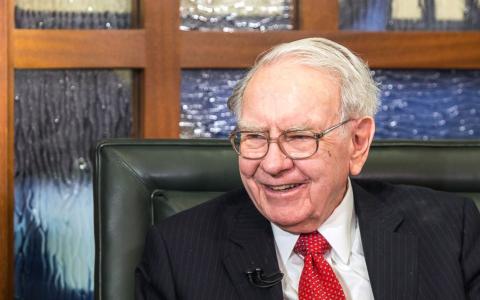
With the stock market trading at record highs, Warren Buffett's preferred valuation measure, the Buffett Indicator, is reaching unprecedented levels.
The Buffett Indicator, which compares the total market capitalization of US stocks to the US GDP, soared to an all-time peak of approximately 209% on Monday, eclipsing the previous record of 200% set in August 2021.
In practical terms, this means the US stock market’s total market capitalization, estimated at about $61 trillion (as tracked by the Wilshire 5000 index), now exceeds double the US annualized GDP of roughly $29 trillion.
For bearish investors, the Buffett Indicator has become yet another signal of potential overvaluation, suggesting a market correction may be imminent. However, research from Morgan Stanley casts doubt on the indicator’s reliability as a standalone valuation metric in today's economy.
Michael Mauboussin, a leading expert at Morgan Stanley’s Counterpoint Global, pointed out two key shortcomings of the Buffett Indicator, originally introduced by Buffett in a 2001 Forbes article.
“First, US companies derive a significantly larger share of their revenue from international markets compared to past decades. GDP does not account for these foreign sales, which means the numerator, market capitalization, represents a broader market than the denominator, GDP, reflects,” Mauboussin explained.
This discrepancy is particularly significant, given that approximately 40% of S&P 500 companies’ revenues come from overseas markets. If these international revenues were included in GDP calculations, the Buffett Indicator might not appear as ominous.
The second shortfall Mauboussin highlighted pertains to structural changes in the economy.
“Second, GDP is likely understated because it struggles to accurately measure improvements in the quality of goods and services, as well as the value of new innovations. The rise of digitalization has made it harder to quantify economic activity compared to previous eras,” he said.
The limitations of GDP as a measure are particularly relevant when considering the economy's shift away from manufacturing and toward a digital and service-driven model. Decades ago, the Buffett Indicator may have been more reflective of economic reality, but today’s landscape is vastly different.
Similar critiques have come from research by BlackRock and economist David Rosenberg, both of whom note the significant transformation of the US economy.
“The equity market’s changing sectoral composition reflects the broader transformation underway. Comparing today’s market to historical benchmarks is like comparing apples to oranges,” BlackRock observed in a recent report.
Rosenberg, known for his bearish stance, recently recalibrated his perspective, acknowledging the evolving, technology-driven nature of the economy.
From Mauboussin’s perspective, the Buffett Indicator illustrates a broader truth about valuation metrics: those that were effective in the past may not be applicable in today’s market environment.
“As with most valuation tools, we must exercise caution when comparing the present to the past,” he concluded.
Even Warren Buffett himself downplays the idea that the indicator is a definitive guide for investment decisions. Speaking at Berkshire Hathaway’s 2017 shareholder meeting, Buffett commented on the relative value of such metrics:
“Every number carries some degree of significance,” Buffett said. “But its relevance varies depending on the context. … These measures are not irrelevant, but they are not always the ultimate determinant. There’s no formula that can consistently determine whether the market is undervalued or overvalued.”
Despite this tempered view, some observers note that Berkshire Hathaway’s massive cash reserve—now exceeding $300 billion—could suggest Buffett sees current valuations as a reason for caution. The market’s lofty levels continue to fuel speculation about the investment strategy of one of its most iconic figures.



